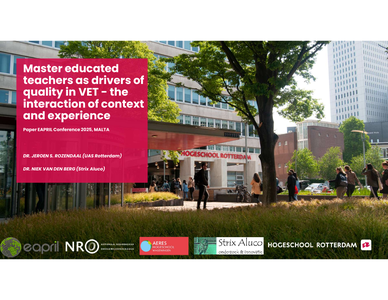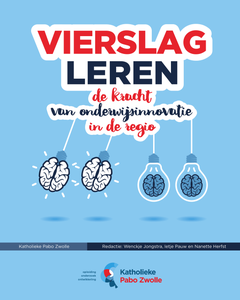In September 2009 the department of Engineering of Fontys University of Applied Sciences in the Netherlands has started a pilot honours program for excellent engineering students called PRogram OUstanding Development (PROUD). Aim of this program is to give those engineering students, who have the ambition, the opportunity to work on extra profession related challenges in their study. By means of this PROUD program Fontys University of Applied Sciences is responding to the wishes of students for extra curricular activities and increasing need from the industry for excellent professionals with an extra level of theoretical knowledge and practical experience. In this paper the courses offered at the Engineering department of the Fontys University of Applied Sciences are discussed. Different study possibilities/routings for students were developed depending on earlier acquainted competences, adaptation abilities to our system (special possibilities for slow starters) and tracking and tracing by intensive study coaching. This resulted in an improvement of the yield of students to 74% of students started in 2008. After working successfully on reducing the drop out rate of our engineering students the department focused on possibilities for excellent students. The department started the PROUD pilot together with engaged engineering students. In 2008 engineering students have carried out a research among their fellow students, lecturers, other institutes [1] and industry. This resulted in a quite different approach of an honours program for the department of Electronic and Electrical Engineering. In the PROUD program the student is stimulated to personally shape his educational career and to explicitly work on developing his own competences. The PROUD excellent program starts after the first year and extends to at least 3 semesters in the following years. The student, guided by a supervisor and outside the regular study time, is working on building an excellent portfolio at the university as well as in industry. During this period the PROUD student will work in industry one day a week in average. This is on top of his bachelor educational program. The students will receive an excellent honours certificate together with their bachelor's degree at the end of the study to express their honourable work. Each year about 20 students apply for a place in PROUD but thus far only about 3-4 passed the first interview round. It turns out that student, university and industry are eager to participate in this PROUD program.
DOCUMENT

Publicatie naar aanleiding van de door Stadslab European Urban Design Laboratory georganiseerde Master Class met als thematiek het ontwerpen van een Innovative District voor de Poolse stad Lublin. De Master Class werd gevolgd door 8 internationale deelnemers en stond onder supervisie van Didier Rebois (Europan, Parijs), Marc Glaudemans (Fontys) en Juliette van der Meijden (Fontys)
DOCUMENT

This paper reports on a multiple-case study of five participants in a school-university research network in a Dutch master's program. Outcomes indicate that use of existing network structures in master's programs is complex, but could be a promising avenue for creating succesful school-university networks.
LINK
Masterprogramma's voor in-service leraren bieden een goede kans om onderzoeksnetwerken te ontwikkelen die scholen en universiteiten/hogescholen verbinden en het gezamenlijk ontwikkelen, delen en gebruiken van kennis betreffende onderwijsonderzoek mogelijk maken. In dit onderzoek wordt onderzocht naar deze kennisprocessen in een US context.
LINK
OBJECTIVE: The purpose of this study is to determine objective vocal quality, vocal characteristics, and vocal habits in future speech language pathology (SLP) students and to evaluate the possible impact of a provided vocal counseling procedure. A comparison of vocal data was done in SLP students who had and who had not undergone vocal counseling procedure. It is hypothesized that counseling results in good vocal quality, adequate vocal performance, and appropriate vocal hygiene. STUDY DESIGN: Randomized controlled study design. METHODS: To determine the vocal quality, questionnaires (Voice Handicap Index [VHI]), subjective (videostroboscopic and perceptual evaluations), and instrumental assessment techniques (aerodynamic, vocal range, acoustic measurements, Dysphonia Severity Index [DSI]) were used. Identical voice assessments were made in 71 students who followed and have not (n=83) followed the vocal counseling procedure. RESULTS: The VHI showed the absence of a psychosocial impact of the vocal quality. Thirty percentage of the subjects mentioned hoarseness as the most common vocal complain. Videostroboscopic evaluations revealed normal vocal anatomy and physiology. A significant difference regarding the DSI value was found between the students with (+3.3, 83%) and without (+1.8, 68%) a followed voice counseling procedure. CONCLUSION: This vocal counseling procedure is added as a standard procedure when future students gain information about the SLP master program. To what extent the presence and content of the vocal education strategy can influence the choice of the profession as an SLP is subject for further research.
DOCUMENT
Over the past decade, the number of master-educated teacher leaders (MTLs) in Dutch education has increased significantly. This study identified three key themes that shape the role of MTLs: 1) driving inquiry-based working in teams; 2) promoting horizontal and vertical alignment within the wider organization; 3) ensuring MTLs’ self-care and professional sustainability. The associated activities are presented in a dynamic model that MTLs can use to choose and reflect on their activities and adapt them to the needs of their context. The study shows that MTLs can play a vital role in developing supportive organizational conditions for a stronger learning culture in VET, provided they engage in the above activities and adapt them to the specific characteristics of their context.
DOCUMENT

Integrated approach aims at bridging the gap between theory and practice in designing persuasive eHealth applications. Developed from a didactic and educational perspective and is being implemented in our master program. It enables our master students to design user-centered persuasive eHealth applications. Inspiring educators on how to teach design of persuasive eHealth applications and support development of best practices in this area.
DOCUMENT

In this article, we describe a study on the impact of an ethics program aimed at strengthening the ethical agency of 15 social workers of three welfare organizations. The goal of the study was to make an inventory of the impact of the program, and to evaluate the relevance of this impact with the help of several stakeholders. The most significant change (MSC) approach was used as a research strategy, though some changes to the approach were made with a view to our research goal. We explain the MSC approach and how we used it in our study design. Further, we describe the research process, answering the question whether our adaptation of the MSC was helpful to inventory the impact of our ethics program and the evaluation of its relevance. The implications of MSC's focus on "most significant" changes and the need for a thorough feedback of the results of the evaluation process in the participating organizations are discussed.
MULTIFILE

Een bundel met bijdragen van studenten, docenten en vertegenwoordigers van het werkveld waarin zij uiteen zetten hoe je de onderwijspraktijk door ontwerpgericht praktijkonderzoek stap voor stap verder kunt brengen. Deze bundel geeft een indruk wat het project Vierslagleren heeft opgeleverd voor de studenten, de scholen en de betrokken besturen.
DOCUMENT
